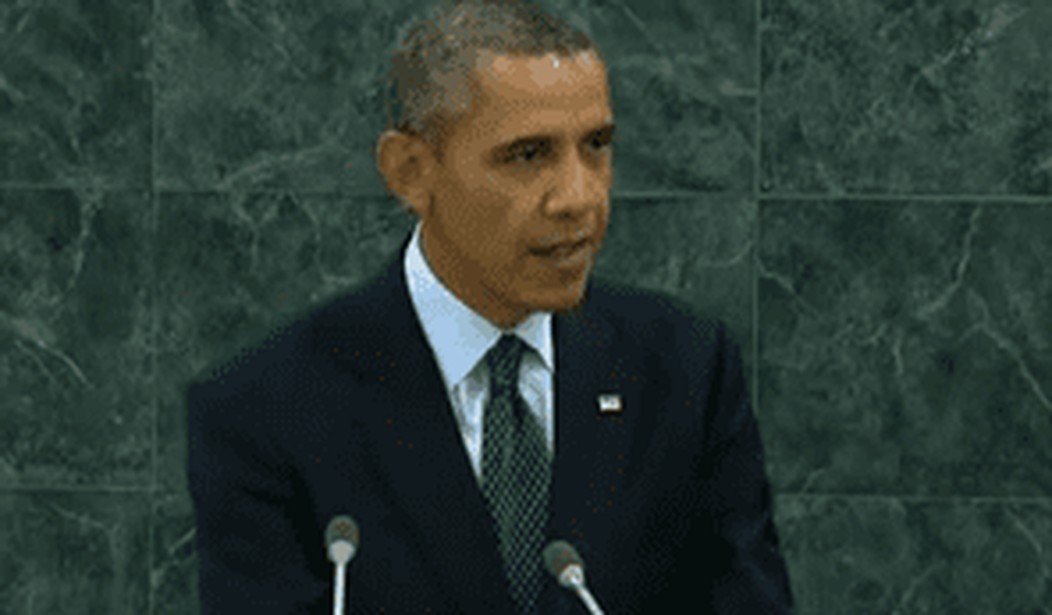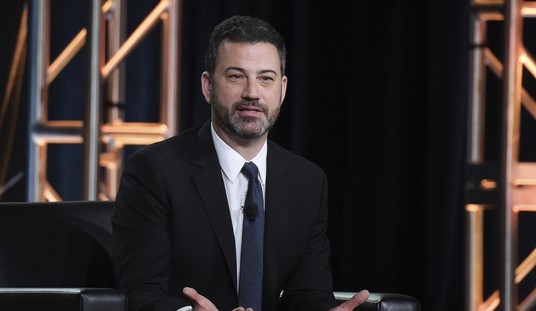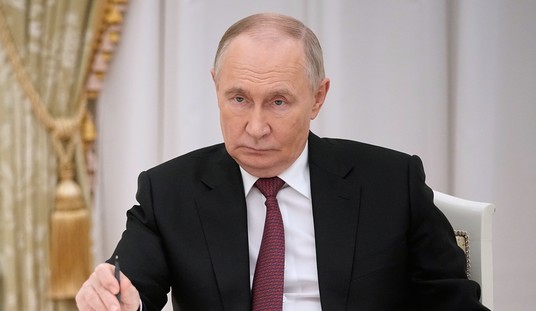President Obama gave a meandering defense of U.S. policy before the United Nations General Assembly in New York today, capped by declarations of wiggle room on key issues such as Iran as he directed Secretary of State John Kerry to begin dialogue with new “reformer” Iranian President Hassan Rouhani.
Not bothering to mention the human rights of Iranians, the president’s muddled message continued: “We are not seeking regime change, and we respect the right of the Iranian people to access peaceful nuclear energy.”
He even declared that al-Qaeda had still been damaged even after rattling off recent terror attacks, and boldly proclaimed “the world is more stable than it was five years ago” — just before acknowledging that “a glance at today’s headlines indicates that dangers remain.”
Like he did just hours after last week’s Navy Yard shooting, Obama touted economic recovery “five years after the global economy collapsed.”
“And for much of my tenure as president, some of our most urgent challenges have involved around an increasingly integrated global economy and our efforts to recover from the worst economic crisis of our lifetime,” he said. “…Thanks to coordinated efforts by the countries here today, jobs are being created, global financial systems have stabilized and people are once again being lifted out of poverty.”
He gave himself kudos for pulling the U.S. out of Iraq and Afghanistan, the latter “having achieved its mission of dismantling the core of al-Qaeda that attacked us on 9/11.”
“In Kenya, we’ve seen terrorists target innocent civilians in a crowded shopping mall. And our hearts go out to the families of those who’ve been affected,” Obama said, failing to mention the name Al-Shabaab anywhere in his speech. “In Pakistan, nearly 100 people were recently killed by suicide bombers outside a church,” he continued, failing to mention it was a Taliban attack on Christians attending services.
“And meanwhile, al-Qaeda has splintered into regional networks and militias which doesn’t give them the capacity at this point to carry out attacks like 9/11, but does pose serious threats to governments and diplomats, businesses and civilians all across the globe,” he acknowledged, neglecting the powerful alliances that the terror group has calculatingly crafted with the express purpose of becoming more powerful with greater reach than before.
Obama focused a sizable chunk of his speech on Syria, noting “the ban against the use of chemical weapons, even in war, has been agreed to by 98 percent of humanity.”
“It is strengthened by the searing memories of soldiers suffocated in the trenches, Jews slaughtered in gas chambers, Iranians poisoned in the many tens of thousands,” he said. “…It’s an insult to human reason and to the legitimacy of this institution to suggest that anyone other than the regime carried out this attack.”
The president called on the UN Security Council to authorize force against Syria if it fails to dismantle its chemical weapons stockpile to “send a powerful message that the use of chemical weapons has no place in the 21st century and that this body means what it says.”
“I do not believe that military action by those within Syria or by external powers can achieve a lasting peace. Nor do I believe that America or any nation should determine who will lead Syria. That is for the Syrian people to decide,” he said. “…We are committed to working this political trek. And, as we pursue a settlement, let’s remember this is not a zero sum endeavor. We’re no longer in a cold war. There’s no great game to be won, nor does America have any interest in Syria beyond the well being of its people, the stability of its neighbors, the elimination of chemical weapons and insuring that it does not become a safe haven for terrorists.”
On Iran, Obama acknowledged “this mistrust has deep roots.”
“Iranians have long complained of a history of U.S. interference in their affairs and of America’s role in overthrowing the Iranian government during the Cold War. On the other hand, Americans see an Iranian government that has declared the United States an enemy and directly or through proxies taken American hostages, killed U.S. troops and civilians, and threatened our ally Israel with destruction,” he said.
“I don’t believe this difficult history can be overcome overnight. The suspicions run too deep. But I do believe that if we can resolve the issue of Iran’s nuclear program, that can serve as a major step down a long road toward a different relationship, one based on mutual interests and mutual respect.”
Obama said he’s sent letters to Ayatollah Khamenei and President Rouhani saying “America prefers to resolve our concerns over Iran’s nuclear program peacefully — although we are determined to prevent Iran from developing a nuclear weapon.”
He listed as a positive step the ayatollah’s “fatwa against the development of nuclear weapons.”
The president also put in a plug for his Mideast peace process efforts, claiming “there’s a growing recognition within Israel that the occupation of the West Bank is tearing at the democratic fabric of the Jewish state.”
“But, the children of Israel have the right to live in a world where the nations assembled in this body fully recognize their country, and where we unequivocally reject those who fire rockets at their homes or incite others to hate them,” he said. “Likewise, the United States remains committed to the belief that the Palestinian people have a right to live with security and dignity in their own sovereign state.”
“…Because just as the Palestinian people must not be displaced, the state of Israel is here to stay.”
Obama complained that the U.S. “has been attacked by all sides of this internal conflict” in Egypt, “simultaneously accused of supporting the Muslim Brotherhood and engineering the removal of power.”
“In fact, the United States has purposely avoided choosing sides,” he said. “Our overriding interest throughout these past few years has been to encourage a government that legitimately reflects the will of the Egyptian people and recognizes true democracy as requiring a respect for minority rights and the rule of law, freedom of speech and assembly, and a strong civil society. That remains our interest today.”
“…And our approach to Egypt reflects a larger point: The United States will at times work with governments that do not meet, at least in our view, the highest international expectations, but who work with us on our core interests.”
He added “the United States has a hard-earned humility when it comes to our ability to determine events inside other countries.”
“…Some may disagree. But I believe America is exceptional. In part because we have shown a willingness through the sacrifice of blood and treasure to stand up not only for our own narrow self interest, but for the interest of all.”
Obama pointed out that “some now criticize the action in Libya as an object lesson, that point to the problem that the country now confronts, a democratically elected government struggling to provide security, armed groups in some places, extremists ruling parts of the fractured land. And so these critics argue that any intervention to protect civilians is doomed to fail. Look at Libya.”
“And no one’s more mindful of these problems than I am, for they resulted in the death of four outstanding U.S. citizens who were committed to the Libyan people, including Ambassador Chris Stevens, a man whose courageous efforts helped save the city of Benghazi,” he said. “But does anyone truly believe that the situation in Libya would be better if Gadhafi had been allowed to kill, imprison or brutalize his people into submission?”
“While we need to be modest in our belief that we can remedy every evil, while we need to be mindful that the world is full of unintended consequences, should we really accept the notion that the world is powerless in the face of a Rwanda, or Srebrenica? If that’s the world that people want to live in, they should say so, and reckon with the cold logic of mass graves,” he continued, not mentioning the two and a half years of slaughter in Syria before the administration became serious about involvement.
“Last month, I stood where 50 years ago Martin Luther King Jr. told America about his dream at a time when many people of my race could not even vote for president. Earlier this year, I stood in the small cell where Nelson Mandela endured decades cut off from his own people in the world,” Obama said.
“Who are we to believe that today’s challenges cannot be overcome when we’ve seen what changes the human spirit can bring? Who in this hall can argue that the future belongs to those who seek to repress that spirit rather than those who seek to liberate it? I know what side of history I want the United States of America to be on.”









Join the conversation as a VIP Member